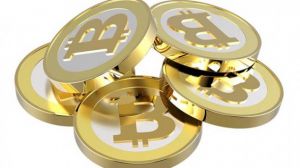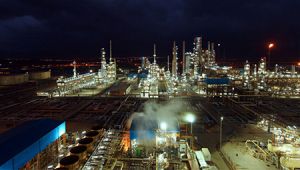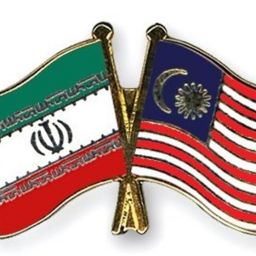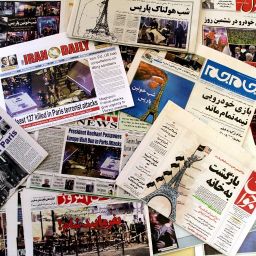Tehran, Moscow sign MoU to build railcars (Mehr News Agency, 28 March 2017)
A Memorandum of Understanding was inked on 27 March 2017 between the Industrial Development & Renovation Organization of Iran (IDRO) and Transmashholding, Russia’s largest company on the railway machine-building market. Under the terms of the agreement, the two sides will join hands in production of rail wagons in Iran through Russian financing.
New Swedish firm offers Iranian stock investment for bitcoin (Tehran Times, 26 March 2017)
 Brave New World Investments AB, a new firm registered in Sweden, is now accepting deposits in bitcoin which it converts to Iranian Rial and invests in equities on the Tehran Stock Exchange. It does this on behalf of its European shareholders while also searching for angel investors among the Persian and bitcoin communities in Europe. The team behind the venture is composed of Mr. Mairtin O’Duinnin and Mr. Mikael Johansson, both with experience in finance and technology in Europe and the Middle East. Brave New World is the first known company in Sweden to incorporate without a bank account and handled all the initial funding in bitcoin. Mr. Johansson explained that they simply do not have a Swedish bank account. However they do have an Iranian bank account for the equity investments. They pay bills, shareholder dividends, Iran deposits – everything – in cryptocurrencies.
Brave New World Investments AB, a new firm registered in Sweden, is now accepting deposits in bitcoin which it converts to Iranian Rial and invests in equities on the Tehran Stock Exchange. It does this on behalf of its European shareholders while also searching for angel investors among the Persian and bitcoin communities in Europe. The team behind the venture is composed of Mr. Mairtin O’Duinnin and Mr. Mikael Johansson, both with experience in finance and technology in Europe and the Middle East. Brave New World is the first known company in Sweden to incorporate without a bank account and handled all the initial funding in bitcoin. Mr. Johansson explained that they simply do not have a Swedish bank account. However they do have an Iranian bank account for the equity investments. They pay bills, shareholder dividends, Iran deposits – everything – in cryptocurrencies.
German exports to Iran soared by 26 percent in 2016, DIHK says (Daily Mail, 27 March 2017)
German exports to Iran rose by 26% last year (2016) and by more than 30% in January 2017 alone, said foreihn trade economist at Germany’s Chamber of Commerce and Industry (DIHK) Mr. Volker Treier on 27 March 2017. Trade between Germany and Iran was worth 2.9 billion euros in 2016, up from 2.4 billion euros in 2015, data from the Federal Statistics Office showed. Exports of German goods accounted for 2.6 billion euros of that amount. Mr. Treier described it as a stable upswing, but not the great success of which German manufacturers and tradrs dreamed and of which they are still dreaming. The DIHK economist said that part of the problem was that hardly any major banks want to get involved in projects and business with Iran due to some U.S. sanctions that remain in place. German banks in the United States risk fines by breaching such restrictions. Another issue is that Iranian banks often do not fulfil international standards, he added.
Iran to present new oil contracts to Russian companies (Tehran Times, 26 March 2017)
 Iran will give presentation on its new oil contracts for Russian companies on 27 March 2017 in Moscow. In November 2015, Iran introduced a new model of oil contracts, known as Iran Petroleum Contract (IPC), which will replace buy-back agreements. It offers more flexible terms on oil price fluctuations and investment risks to make the sector more financially attractive. Managing Director of the National Iranian Oil Company (NIOC) Mr. Ali Kardor has said the country needs $134 billion of investment for upstream oil and gas projects by 2021 to meet the objectives of the country’s Sixth National Development Plan (2016-2021) and with the new contract model it would be possible to reach this figure even sooner. The official noted that 29 international companies have been prequalified to bid for the country’s oil and gas projects based on the new model of contracts. Anglo-Dutch Shell, France’s Total, Italy’s Eni, Malaysia’s Petronas, Russia’s Gazprom and Lukoil, Austria’s OMV, Germany’s Wintershall, as well as companies from Spain, Poland, China, Japan, India and some other countries are in the list of companies prequalified for IPC.
Iran will give presentation on its new oil contracts for Russian companies on 27 March 2017 in Moscow. In November 2015, Iran introduced a new model of oil contracts, known as Iran Petroleum Contract (IPC), which will replace buy-back agreements. It offers more flexible terms on oil price fluctuations and investment risks to make the sector more financially attractive. Managing Director of the National Iranian Oil Company (NIOC) Mr. Ali Kardor has said the country needs $134 billion of investment for upstream oil and gas projects by 2021 to meet the objectives of the country’s Sixth National Development Plan (2016-2021) and with the new contract model it would be possible to reach this figure even sooner. The official noted that 29 international companies have been prequalified to bid for the country’s oil and gas projects based on the new model of contracts. Anglo-Dutch Shell, France’s Total, Italy’s Eni, Malaysia’s Petronas, Russia’s Gazprom and Lukoil, Austria’s OMV, Germany’s Wintershall, as well as companies from Spain, Poland, China, Japan, India and some other countries are in the list of companies prequalified for IPC.
Oman agrees to deepen ties with Iran central bank (Times of India, 26 March 2017)
On 26 March 2017, Oman’s Central Bank announced it had signed a memorandum of understanding with the Iranian Central Bank to strengthen financial and economic cooperation between the two countries. Oman has traditionally had close business and diplomatic relations with Iran, and it is hoping for Iranian investment to help it cope with economic pressure due to low oil prices. Last year an Omani sovereign wealth fund agreed to study a proposal to build an auto plant in Oman with Iranian investment. In April 2016, Bank Muscat – Oman’s largest bank – said it had received all regulatory approvals to open a representative office in Iran.
New complexes to add 9.5mt to Iran’s petrochemical output (Tehran Times, 26 March 2017)
Iran’s Oil Minister Mr. Bijan Zanganeh said on 25 March 2017 that new petrochemical complexes going online will add 9.5 million tons (mt) to the country’s petrochemical output, adding that the new complexes will produce over $5.5 billion worth of petrochemical products annually. Iran plans to boost its petrochemical output to 140 million tons per annum by the end of its outlook plan for the calendar year of 1404 (March 20, 2026) and $70 billion of investment is required to meet this objective.
Iran boosts electricity generation capacity by 2.199GW (Tehran Times, 28 March 2017)
 Iran increased its electricity generation capacity by 2.199 gigawatts, boosting it to 76.302GW, in the past Iranian year 1395 (21 Mach 2016-20 March 2017), according to a report by the Iran Power Grid Management Company. Natural gas power plants accounted for 75.5 percent of the increased generation capacity, equaling 1.66GW. Combined cycled power plants, hydroelectric power plants, distributed generation power plants, and renewable energy power plants also accounted for 14.6 percent, 3.4%, 5.7%, and 0.9% of the total rise in the country’s electricity generation capacity, respectively. Iran ranks currently the first in the region and 14th in the world in terms of electricity generation capacity. In January 2016, Deputy Energy Minister Mr. Houshang Falahatian said that over 95 percent of the country’s power transmission equipment are domestically built, adding that Iran is also self-sufficient in manufacturing its power distribution equipment.
Iran increased its electricity generation capacity by 2.199 gigawatts, boosting it to 76.302GW, in the past Iranian year 1395 (21 Mach 2016-20 March 2017), according to a report by the Iran Power Grid Management Company. Natural gas power plants accounted for 75.5 percent of the increased generation capacity, equaling 1.66GW. Combined cycled power plants, hydroelectric power plants, distributed generation power plants, and renewable energy power plants also accounted for 14.6 percent, 3.4%, 5.7%, and 0.9% of the total rise in the country’s electricity generation capacity, respectively. Iran ranks currently the first in the region and 14th in the world in terms of electricity generation capacity. In January 2016, Deputy Energy Minister Mr. Houshang Falahatian said that over 95 percent of the country’s power transmission equipment are domestically built, adding that Iran is also self-sufficient in manufacturing its power distribution equipment.
Russia-Iran trade turnover doubled in January, over $155mn (Mehr News Agency, 27 March 2017)
The year-on-year trade turnover between Russia and Iran almost doubled in January 2017 and exceeded US$ 155 million, the Russian Ministry of Economic Development announced on 27 March 2017. The statement added that Russia’s exports to Iran had increased by 2.7 times up to US$ 117,7 million, while the exports of the Middle Eastern country had increased by 6.3% up to US$ 37.3 million. Earlier in March 2017, Iranian Ambassador to Russia Mr. Mehdi Sanaei expressed hope that the volume of trade between the two states could reach US$ 10 billion in the coming two or three years.
By Natela Outtier



